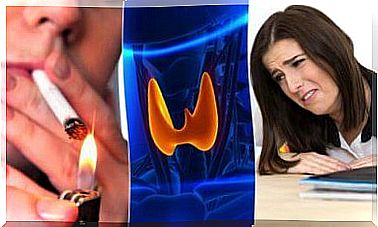Why Nutrition Is Important During Pregnancy
A healthy diet during pregnancy covers all the nutritional needs of the expectant mother and the developing child. It is not just a matter of eating more, but of incorporating certain foods into the nutrition plan that the body needs at this stage of life.

Diet during pregnancy is a fundamental factor in ensuring the health of the expectant mother and the developing baby. The usual diet is not sufficient to meet all needs during pregnancy. In addition, a lack of nutrients or an excess of certain foods can lead to a wide variety of problems.
While there are many myths on this subject, it is undeniable that diet is one of the most important pillars during pregnancy to:
- To meet the nutritional needs of the fetus,
- to meet the needs of the mother
- and to enable the synthesis of milk .
It is not necessary to eat twice as much, but the right quantity and quality of certain nutrients is important. During pregnancy, nutrition must correspond to the new biological balance that arises when a small human life grows in the womb.
The importance of nutrition in pregnancy

A pregnant woman’s diet is directly related to the health of the growing baby, both in the womb and after birth. A nutritional deficiency in this phase can, for example, lead to premature birth or to a low birth weight.
However, a healthy diet is not only important for the baby. It also affects the quality of the placenta. In addition, it provides the mother with sufficient energy, which she needs especially during childbirth and afterwards, activates milk production and prevents anemia.
If the expectant mother is excessively overweight or obese, the risk of high blood pressure, liver disease or gestational diabetes is greater. This also increases the likelihood of a caesarean section. Children born to obese mothers are also more prone to macrosomia (abnormal body size) and chronic non-communicable diseases.
Every mother’s circumstances are different, so it is important that the pregnant woman seek advice from her doctor about specific nutritional needs. The diet should adapt to the mother’s tastes and also to the availability of food.
Basic nutrients during pregnancy

In general, a pregnant woman’s diet should take into account the following proportions:
- 15 to 17 percent protein
- 53 percent carbohydrates
- 30 percent fat
- Vitamins and minerals in the right amount
Particularly important nutrients are:
- Carbohydrates: They provide energy and are found, for example, in rice, pasta, whole grains, legumes, potatoes and fruit.
- Proteins: They are crucial for the baby’s development and birth weight. They also ensure balanced growth in the maternal organs, such as the uterus and breast. In general, it’s best to consume 80 grams of protein a day for the first trimester of pregnancy. After that, 100 grams are recommended and 120 grams during breastfeeding.
- Fat: Fats protect the organism, transport vitamins and contribute to the formation of hormones. They are also an important source of energy. It is best to consume the right amount of high quality unsaturated fatty acids and only a few saturated fats.
Other basic nutrients
In addition to the macronutrients mentioned, the pregnant woman also needs other important elements. These include, for example, vitamins and minerals:
- Calcium: The diet during pregnancy should provide at least 120 grams of calcium per day. You can get this mineral from milk, yogurt, cheese, or other products. Calcium is also found in whole grains, legumes, and leafy green vegetables.
- Iron: This mineral is not that important in the first trimester of pregnancy, but is crucial afterwards. You should get iron through your diet every day to prevent anemia and prevent your baby from having a low birth weight. The doctor will advise you and, if necessary, prescribe an iron dietary supplement.
- Other minerals: Foods with phosphorus are also important for the development of the bones of the small abdominal dweller. In addition, potassium and zinc are essential to promote a healthy nervous system.
- Vitamins: A good diet during pregnancy should also include foods rich in vitamins A, C, and D, as well as B vitamins. These are important for the development of the child’s organs and for their bodily functions. They also maintain the biological balance in the mother’s body.









